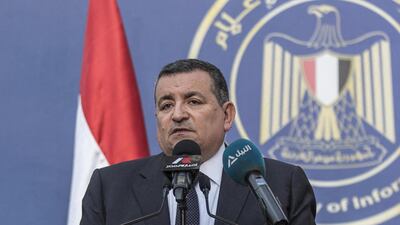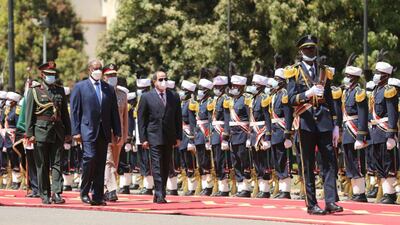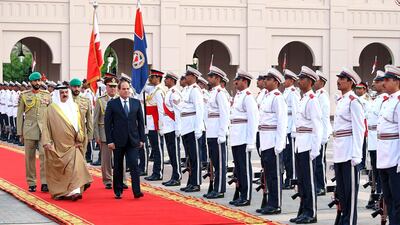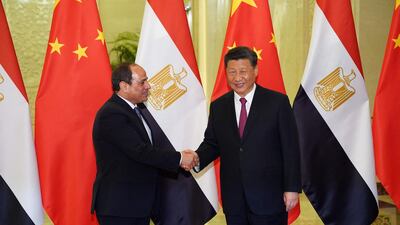Egypt has welcomed Turkey's move to stop criticism of President Abdel Fattah El Sisi and his government by opposition TV networks based in the country.
The move follows a series of surprise overtures to Egypt by top Turkish officials. Cairo responded last week by saying that it wanted to see words matched by actions if eight years of enmity between the two regional heavyweights were to end.
Egypt's Minister of State for Information, Osama Heikal, said the order by Turkish authorities to the networks to halt the attacks “could create an encouraging climate for dialogue between the two countries to resolve years of outstanding problems”.
He told the BBC in Cairo over the weekend that he expected the Egyptian media to follow suit and tone down attacks on Turkey as a prelude to possible negotiations between the two nations.
Egyptian talk shows hosted by pro-government anchors have for years blasted Turkish policies in the region, saving their worst criticism for President Recep Tayyip Erdogan, whom they accuse of trying to restore Ottoman hegemony over the region and have nicknamed the “sultan”.
An Egyptian-Turkish rapprochement could lead to a major regional realignment, shutting down a major source of tension and possibly giving a push to plans by Egypt, Israel and Turkey’s perennial rivals Greece and Cyprus to turn the East Mediterranean into a major energy hub following the discovery of massive natural gas reserves there.
Relations between Egypt and Turkey have been fraught since 2013, when the Egyptian military – then led by Mr El Sisi – removed Turkish ally and Islamist Mohammed Morsi from the presidency amid mass protests against his divisive rule.
Cairo has since accused Turkey of supporting extremist Islamist groups across the region, fuelling instability, and of attempting to isolate Egypt by extending its influence in the region and beyond.
A major irritant to Cairo has been the fierce criticism of Mr El Sisi’s government aired daily by three opposition TV networks operating from Turkey and loyal to the Muslim Brotherhood.
The Brotherhood is an Islamist group now banned by Egypt and several other Arab nations. Morsi, who died in detention in 2019, hailed from the group.
The chairman of Al Sharq, one of the three networks along with Mekameleen and Watan, confirmed the Turkish order to tone down criticism of Egypt, but attempted to present it as simply a call to adhere more closely to journalistic ethics and objectivity.
“We were not asked to shut down the networks, cancel programmes, or hear about deporting opposition politicians,” Ayman Nour told media.
He said the move was surprising.
“This is a development that was not foreseen. In seven years, no one spoke to us about our discourse.”
Amr Adeeb, the host of a popular talk show on the Saudi-owned MBC Masr network, said every Egyptian should be pleased with the Turkish decision, although he counselled caution.
“What happened was a start not an end. In any war, a ceasefire must take hold so that people can sit down and talk,” he said.
He pointed out that the opposition channels were the least serious of the outstanding issues between Egypt and Turkey, with the planned East Mediterranean energy hub and maritime demarcation between Egypt and Turkey at the top of the list.
The signs are encouraging.
In Libya, where Turkey and Egypt supported rival factions in a civil war and looked close to going to war last summer, a national unity government is in place and a ceasefire is holding.
Turkish Foreign Minister Mevlut Cavusoglu said “intelligence” and “diplomatic” contacts with Egypt had resumed and praised Cairo for respecting Turkey’s exclusive maritime zone when it announced a tender last month for oil and gas exploration in the East Mediterranean. Egypt confirmed the contacts, but made clear they did not amount to a resumption of relations.
The Turkish overtures come at a time when Ankara appears to be trying to find a way out of its isolation in recent years, mending ties with the European Union and working to defuse tension with Greece over maritime jurisdiction in the Mediterranean.
________________







